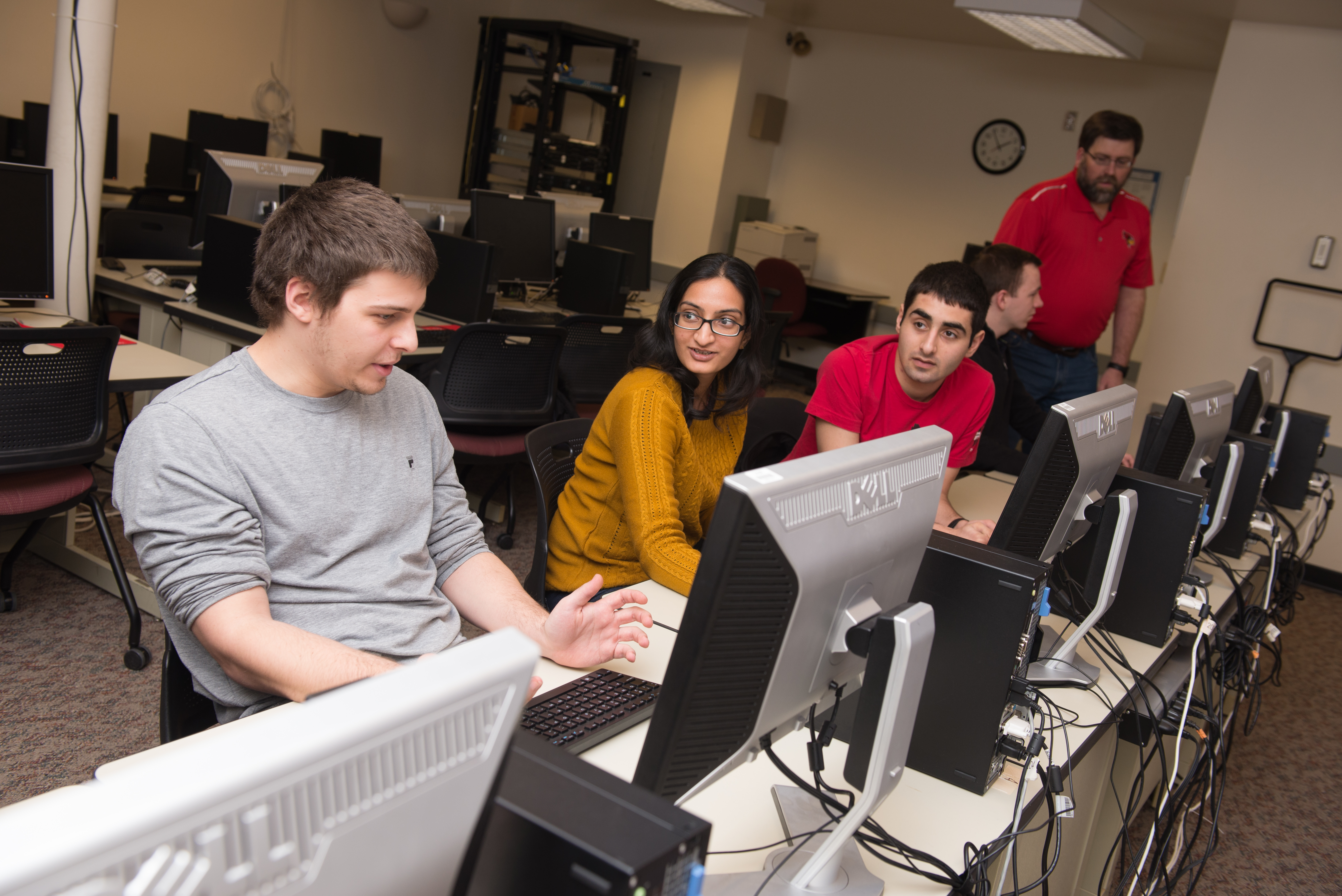The School of Information Technology (IT) has recently made some very exciting changes to our curriculum, which is the set of classes a student takes to earn a degree. The driving forces behind these changes are advice from our industry advisory boards, and faculty research and observations of sister institutions. Changes they recommend to the school’s programs better prepare our students for the workplace.
The biggest news is our new major. We are very pleased to announce that the Illinois Board of Higher Education has approved a new cybersecurity major to take the place of the former information assurance and security sequence in information systems.
It will begin in fall 2017, and students in the existing sequence can easily transfer into the new major. We are revising an existing security course, adding a new optional second programming course, and adding three new security related courses for the major as well as revising an existing course. Required courses will cover defensive security, offensive security (think ethical hacking), and a combination of security incident and event management with forensics. A secure software development course will be available as an elective to both the cybersecurity major and computer science students in the general computer science sequence.
The school has also expanded our offerings in the area of web and mobile technologies, adding a mobile and cloud computing course as a requirement for the existing information systems web application development sequence. A new Web computing sequence has been added to the computer science major, since many of our computer science students do go into Web development. The two Web sequences share the same required Web and mobile courses, but give students different backgrounds and programming skills.
The computer science major has also seen a few changes in electives for the general computer sequence as well as supporting courses for all. New electives cover topics such as cryptography, business intelligence, data warehousing, enterprise computing, and the above-mentioned secure software development. The changes to supporting requirements give students a little more freedom in selecting math and science courses, while still providing a strong background. New options include an introductory psychology course and linear algebra.
Information systems majors also have some new elective options, including courses in business intelligence, data mining, and enterprise computing.
Network and telecommunications management majors will be able to choose a new optional second programming course. The data communications course has been adjusted to allow students with a basic networking course from a community college to transfer it to Illinois State.
The telecommunications network operations and management course has been revised to Advanced Computer Networks, with content that highlights the newest developments in networking and prepares student to build robust, efficient, and flexible networks.
In addition, all of our undergraduate majors now require students to take a class covering social, legal and ethical issues in information technology. The master’s degree in information systems hasn’t changed much in the last couple of years. The school still offers certificates designed for individuals who would like to gain specialized knowledge in an area without the commitment of completing an entire degree program. The certificates require completion of three courses. The topics are
• Enterprise computing
• Information assurance and security
• Internet application development
• Network and telecommunication management
• Systems analyst
The degree program offers sequences in the following:
• Geographic information systems (GIS, a shared program with Geography)
• Internet application development
• Network and security management
• Systems development


